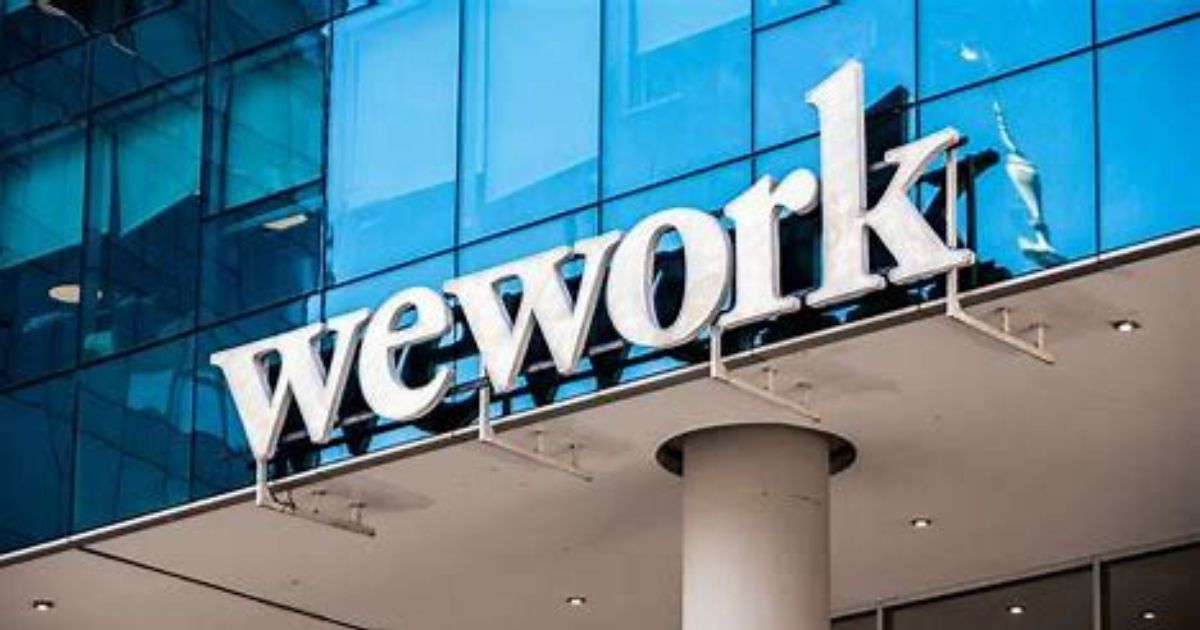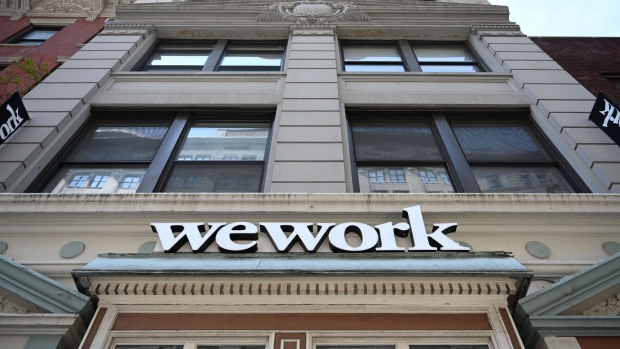WeWork Plummets to Historic Lows Amid Looming Bankruptcy Threat

WeWork Plummets to Historic Lows Amid Looming Bankruptcy Threat
In a stunning turn of events, WeWork, the New York-based flexible workspace provider, has seen its shares plummet by nearly 50% to an all-time low. The beleaguered company is reportedly on the verge of filing for bankruptcy as early as next week, sending shockwaves through the financial world. The stock is currently trading at an astonishingly low $1.18, raising questions about the future of this once high-flying company.
According to initial reports by the Wall Street Journal (WSJ), WeWork is contemplating the possibility of filing a Chapter 11 petition in New Jersey. This news comes as a severe blow to a company that was once valued at tens of billions of dollars and had grand ambitions of redefining office space and collaboration.
The rapid downfall of WeWork can be traced back to a series of ill-fated decisions, financial struggles, and an increasingly competitive market. This article delves into the reasons behind WeWork’s current crisis, its impact on stakeholders, and the potential outcomes of a bankruptcy filing.
A Spectacular Rise and a Swift Fall
WeWork’s journey is a quintessential example of a meteoric rise followed by an equally swift fall. Founded in 2010 by Adam Neumann and Miguel McKelvey, the company quickly gained attention and a massive valuation due to its innovative approach to co-working spaces. It aimed to create vibrant, collaborative environments that attracted startups, entrepreneurs, and even established corporations.
In the following years, WeWork expanded rapidly, opening offices in major cities worldwide and securing massive investments from SoftBank and other investors. At its peak, WeWork was valued at a staggering $47 billion, making it one of the most valuable startups globally.
However, the company’s ascent was not without controversy. Its corporate governance, high spending, and unusual financial practices drew criticism. Adam Neumann, the charismatic and sometimes eccentric co-founder, faced scrutiny for his management style and excessive influence within the company.
The company’s IPO attempt in 2019 was met with skepticism and ultimately shelved due to concerns over its financial health and corporate governance. WeWork’s valuation began to unravel, and SoftBank, its largest investor, was forced to step in with a bailout package, taking control of the company.
Financial Woes and the Pandemic
WeWork’s problems were exacerbated by the global COVID-19 pandemic. With lockdowns and remote work becoming the norm, demand for office spaces dwindled. The company’s occupancy rates fell sharply as many of its clients canceled or downsized their leases. In a world suddenly defined by social distancing, the shared working model lost much of its appeal.
WeWork’s financial situation became increasingly dire. It reported a net loss of $2.1 billion in 2020, and the value of its leases became a heavy burden on its balance sheet. The company was forced to lay off thousands of employees, sell non-core assets, and implement cost-cutting measures to stay afloat.
To make matters worse, the company’s image was tarnished by the controversy surrounding Neumann’s golden parachute exit package, which was ultimately reduced in the face of public outrage.
Failed Leadership and Governance
WeWork’s leadership and corporate governance have been at the center of its troubles. Adam Neumann’s management style, which was often characterized as erratic, led to an unsustainable corporate culture. His behavior and decisions, including the ill-fated IPO attempt and extravagant personal expenditures, eroded trust in the company.
Neumann’s departure in 2019 was a turning point, but it could not undo the damage already done. Marcelo Claure, appointed as WeWork’s executive chairman, attempted to stabilize the company and initiate a turnaround. Despite these efforts, the challenges were monumental, and WeWork continued to face a steep uphill battle.

Competitive Pressure and Shifting Demand
The co-working industry, which WeWork pioneered, has become increasingly competitive. Other players, such as Regus and Knotel, have offered similar services, and traditional office space providers have also adapted to the changing landscape by providing more flexible lease terms.
The pandemic accelerated the trend of remote work, with many companies and employees realizing the benefits of working from home or other decentralized locations. This shift in demand further challenged WeWork’s business model.
Impacts on Investors and Stakeholders
WeWork’s impending bankruptcy filing is poised to have far-reaching consequences for its investors and stakeholders. This includes SoftBank, which had previously bailed out the company with a multi-billion-dollar rescue package and gained control of WeWork.
The investment giant had hoped to turn around the beleaguered firm and create value for its Vision Fund. However, the continuous struggles of WeWork have proved to be a significant challenge, and the prospect of bankruptcy will likely result in substantial losses for SoftBank.
Furthermore, landlords who had signed leases with WeWork may face disruptions as the company attempts to renegotiate or exit lease agreements through bankruptcy proceedings. Small businesses and startups that had relied on WeWork’s flexible workspaces may also be left in a precarious situation, forced to find new accommodations amidst the uncertainty.
Potential Bankruptcy Scenarios
As WeWork teeters on the brink of bankruptcy, several potential scenarios could unfold:
1. Chapter 11 Reorganization: WeWork could file for Chapter 11 bankruptcy, allowing it to restructure its debts and operations while continuing to operate. This scenario would provide the company with an opportunity to shed unprofitable locations, renegotiate leases, and streamline its business.
2. Asset Sales: WeWork may opt to sell some of its assets, including real estate and lease agreements, to raise cash and repay creditors. These sales could involve individual locations or larger portfolios of properties.
3. Liquidation: In the worst-case scenario, WeWork could pursue a Chapter 7 bankruptcy, leading to the liquidation of the company’s assets to repay creditors. This could mark the end of WeWork as we know it.
4. Restructuring Under SoftBank: SoftBank, as a major stakeholder, may explore the possibility of restructuring WeWork outside of bankruptcy court. This could involve further infusions of capital and a revamped business strategy.
The exact path WeWork takes will depend on various factors, including negotiations with creditors, the willingness of stakeholders to support a restructured company, and the state of its assets and obligations.

Conclusion
WeWork’s rapid fall from grace is a cautionary tale of corporate excess, mismanagement, and the challenges faced by companies in a rapidly evolving business landscape. The impending bankruptcy filing, if realized, will have a profound impact on investors, landlords, and the co-working industry.
While WeWork may continue to exist in some form after bankruptcy, its glory days of meteoric growth and sky-high valuations are long gone. The co-working industry, too, will have to adapt to changing demands and competition, making it a case study of how a once-promising disruptor can face stark realities in a shifting world.
For now, all eyes are on WeWork’s next move and the decisions that will shape the future of this once high-flying company. It’s a story of hubris and humility, a tale of the pitfalls of unchecked ambition and the enduring need for adaptability in the world of business.




